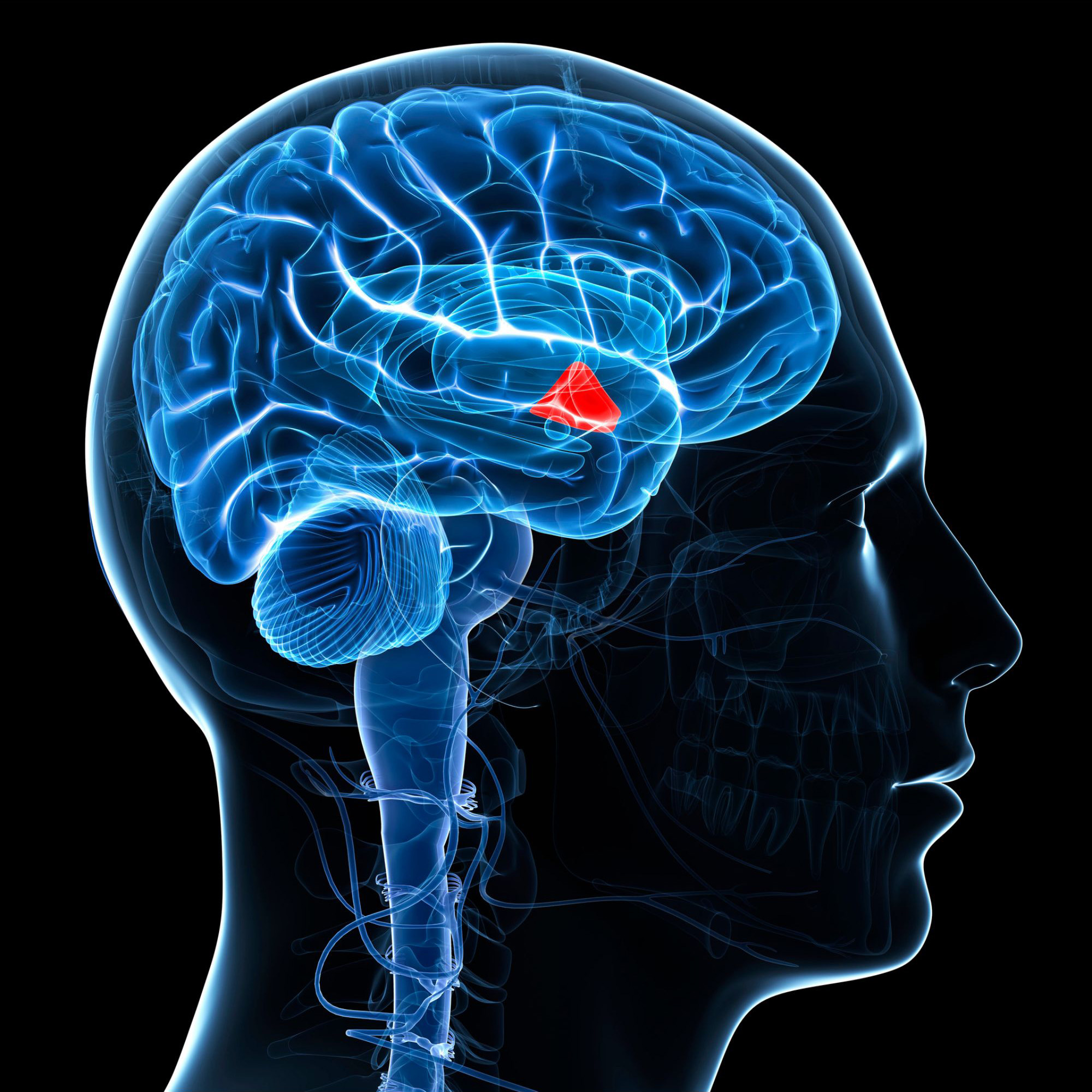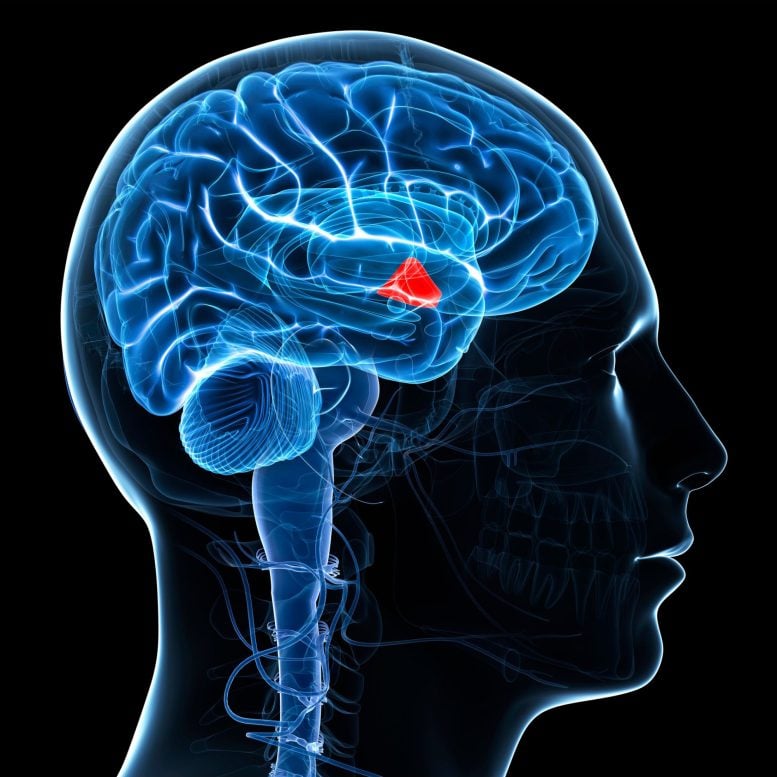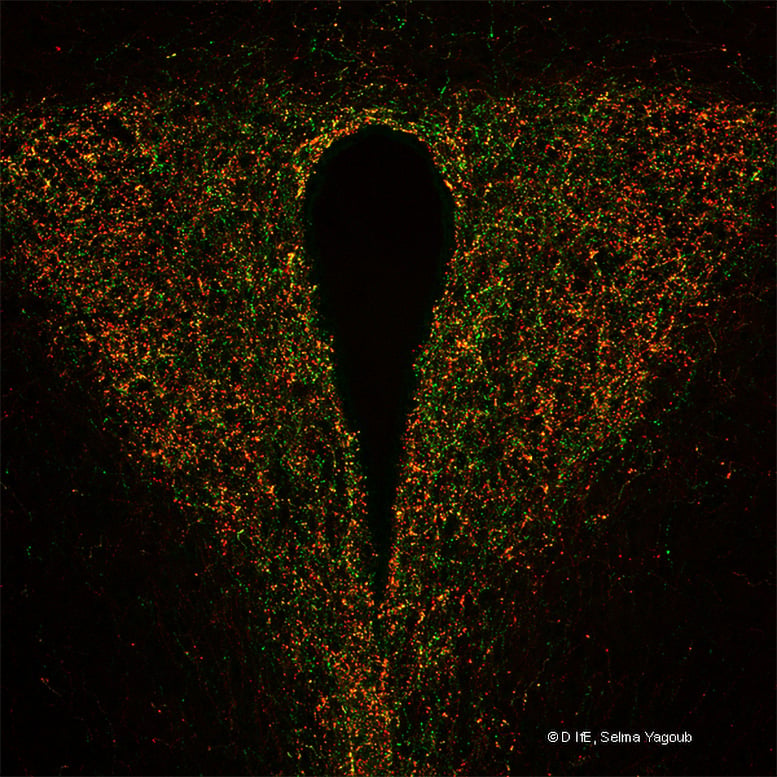

A high-fat diet affects the brain and metabolism, but researchers believe sugar might have a stronger impact than fat.
A diet high in fats may contribute to obesity and elevate the risk of metabolic disorders, including diabetes. Researchers from the German Institute of Human Nutrition Potsdam-Rehbruecke (DIfE) and the German Center for Diabetes Research (DZD) have found that such a diet also causes noticeable changes in the hypothalamus region of mouse brains. However, these effects are not solely due to fat, according to their study published in the journal Scientific Reports.
The connections between neurons in the brain are constantly changing. Diet has a significant influence on this. It is now known that a high-fat diet can cause changes in the hypothalamus that disrupt energy homeostasis and can increase the risk of metabolic diseases.

Food intake is predominantly regulated within the brain by two types of neurons: AgRP (Agouti-related peptide) and POMC (proopiomelanocortin) neurons. Both are primarily found in the hypothalamus—or more precisely, in the paraventricular nucleus, a core region of the hypothalamus—and have opposite actions. POMC neurons inhibit food intake, while AgRP neurons promote it.
Fat or Rather Sugar?
Previous research showed that AgRP neuron activity in the paraventricular nucleus decreases in mice that are fed a high-fat diet. This was mostly attributed to the high fat content of the diet given to the animals. However, the food of the studied mice also contained other nutrients, including sugar. It therefore cannot be said with certainty which macronutrient is responsible for the neuronal changes.
The researchers from DIfE and DZD investigated whether it is primarily fat that causes changes in the brain. They fed male and female mice a high-fat and low-sugar diet for 48 hours. It was important for the researchers to study both male and female mice, as previous studies had often only used males. As a result, it was unclear whether the two sexes respond differently to a high-fat diet.
Other Nutrients of Greater Significance
The examination of the animal brains produced an unexpected result: An effect of the high-fat diet was not identified. The connectivity of AgRP neurons had not decreased in either female or male mice.
This suggests that it is not dietary fat (alone) that is responsible for the previously observed changes in the hypothalamus. The researchers suspect that other macronutrients, such as sugar, have more profound effects on AgRP neurons. They now want to conduct further studies to explore the role of individual macronutrients on neuroanatomical and functional changes in the brain.
Reference: “Acute elevated dietary fat alone is not sufficient to decrease AgRP projections in the paraventricular nucleus of the hypothalamus in mice” by Selma Yagoub, Robert A. Chesters, Jonathan Ott, Jiajie Zhu, Lídia Cantacorps, Katrin Ritter and Rachel N. Lippert, 29 August 2024, Scientific Reports.
DOI: 10.1038/s41598-024-70870-0